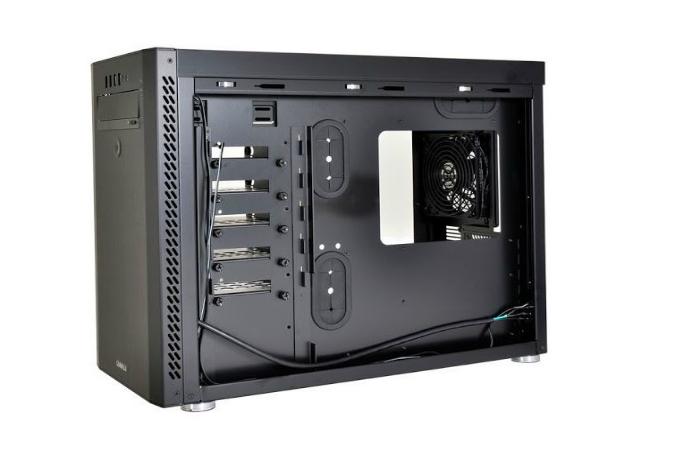
Lian Li, which is known for making PC cases, power supplies and other PC-centric gear, has announced the PC-A51, an austere mid-tower case that starts at $149 and ships in one of four color/design schemes (black pictured). However, it’s an internal feature that makes the Lian Li PC-A51 stand out.
With most PC cases, airflow works like this: air gets sucked in through the front panel, blown over all the components as it travels through the case, then exits through the rear panel. With the Lian Li PC-A51, however, airflow works in reverse. Air gets pulled through the back of the case with the help of a 120mm fan, then pushed out through the front panel with the help of a front-mounted 140mm fan, a unique design Lian Li says was developed with input from the PC DIY community.
As for specs, the Lian Li PC-A51 includes five removable hard drive bays, each of which supports either a 3.5-inch or 2.5-inch drive. The firm also indicates that if you remove all of the bays, you can fit three more 2.5-inch drives onto the motherboard tray, as well as another 2.5-incher behind the tray. The case supports ATX and Micro ATX cases, sports seven expansion slots
The Lian Li PC-A51 supports graphics cards that are 15.7-inches long, CPU coolers that are 6.89-inches high, and power supplies that are 6.29-inches long.
As mentioned, the Lian Li PC-A51 sports an entry level price of $149. At that price, you can get the case in black or silver. Snagging one with black internals and a panel window bumps the cost up to $189. The Lian Li PC-A51 tops out at $199. For that you get a case that features a mix of red and black, along with a panel window.
What do you think? Sound off in the comments below.


